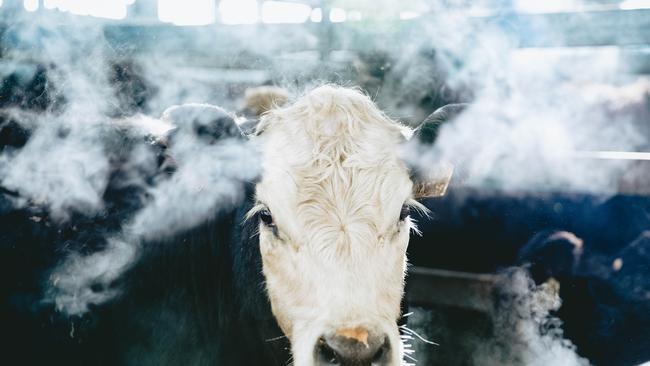Early adaptors to claim competitive advantage in changed climate, expert says
Climate change is not all bad news for livestock producers, with an expert forecasting long-term price upsides for those who adapt.

Livestock producers are already feeling the negative impacts of climate change, but those who successfully adapt can expect a silver lining in years to come.
Higher long-term global food prices are expected to be a function of climate change, a leading climate policy expert has told a MerinoLink conference in Wagga Wagga, NSW, last week.
While not shying away from the severe changes to the environment — such as more variable rainfall and decreased reliability, a higher frequency of heat stress days influencing livestock and pasture growth, and worse droughts — the picture was “not all bad” for producers who could produce meat efficiently.
This is according to Australian National University climate institute director Professor Mark Howden.
And for producers who tackled changing climates head on, adaptation would leave them empowered and in a good position to cope with an increasingly difficult climate with less stress.
Prof Howden said Bureau of Meteorology data showed there had already been a gradual decline in cool season rainfall recorded during winter in southern Australia since 1900.
“The increase in temperature and reductions in rainfall have resulted in increasing drought in many regions globally — including in south eastern and south western Australia,” he said.
Changes to the climate was also reducing agricultural productivity globally, he said.
Importantly for northern Australian producers to consider is the frequency of high heat stress days was increasing, which would decrease the productivity of some systems.
Meanwhile, southern Australia could expect a continuation of the pattern of more summer rain, more intense rain events, greater variability between seasons and increased water evaporation.
“Food prices are likely to increase (globally); food trade will increase due to variability in supply and those would adapt best will have a competitive advantage,” he said.
But on emissions, Prof Howden said livestock were responsible for around 22 per cent of global greenhouse emissions, which was “too big to ignore”.
While there were few immediate technical options to reduce methane output by 10-30 per cent they were only relevant for intensive systems. And, for extensive livestock grazing a vaccine was “still a long way off”, he said.
This comes as Australia’s research efforts into reducing emissions from its export-focused livestock industries were slammed earlier this year as “hopelessly inadequate” by a leading ag researcher. Current funding left extensive grazing producers without tools they would need to meet future customer demands, the University of Melbourne’s professor of sustainable agriculture Richard Eckard said.
Meanwhile, the National Farmers Federation’s policy supports economy-wide net carbon neutral by 2050, providing it makes economic sense for farmers to do so, and Meat and Livestock Australia has set an ambitious industry target to be Carbon Neutral by 2030.


